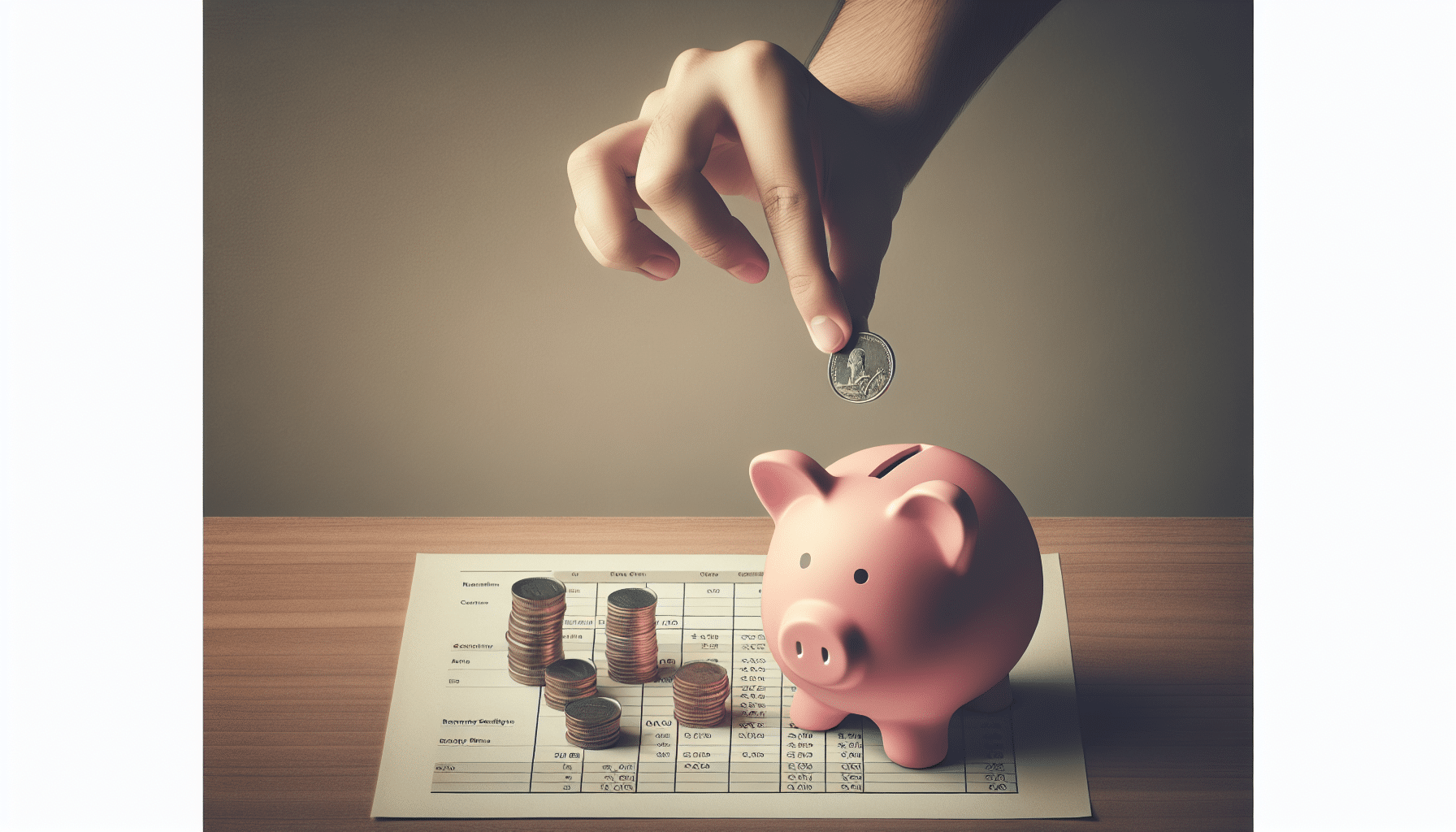Have you ever struggled with keeping track of your expenses and making sure you have enough money for bills and other essential payments? Well, the benefits of budgeting by paycheck are here to save the day! With this method, you create a budget every time you get paid, giving you a clear understanding of your income and expenses. This way, you can avoid overdraft fees and ensure that you don't spend more than you have before your next paycheck. Budgeting by paycheck is particularly beneficial for those who are paid more than once per month, live paycheck to paycheck, or are new to budgeting. By following simple steps like using a blank calendar, tallying up your expenses, and assigning each expense to a specific paycheck, you can take control of your finances and achieve financial stability. Plus, with the help of tools like calendars, budget templates, and budgeting apps, setting up a paycheck budget has never been easier! Don't let your finances control you – take charge with budgeting by paycheck today.

This image is property of images.pexels.com.
Benefits of Budgeting by Paycheck
Budgeting by paycheck is a method that involves creating a budget each time you get paid. This approach offers several benefits that can help you achieve financial success and peace of mind.
Clear understanding of income and expenses
When you budget by paycheck, you gain a clear understanding of the money coming in and going out of your bank account. This allows you to track your income and expenses more effectively, making it easier to identify areas where you can save or cut back. By having a comprehensive view of your finances, you can make informed decisions about how to allocate your money and prioritize your expenses.
Avoidance of overdraft fees
One of the biggest advantages of budgeting by paycheck is its ability to help you avoid overdraft fees. By tracking your income and planned expenses for each paycheck, you can ensure that you have enough funds to cover your bills and avoid overdrawing your account. This can save you significant amounts of money in fees and penalties, which can be better utilized towards achieving your financial goals.
Prevention of overspending
Budgeting by paycheck can also act as a safeguard against overspending. When you allocate specific amounts for different budget categories within each paycheck, it becomes easier to stick to your spending limits. This method instills discipline and helps you make more conscious spending decisions. By keeping your expenses in check, you can avoid the stressful situation of running out of money before your next paycheck arrives.
Suitable for multiple paychecks per month
If you receive multiple paychecks per month, budgeting by paycheck is a particularly suitable method for managing your finances. Instead of trying to budget for the entire month at once, which can be overwhelming, you can break it down into manageable chunks. This allows you to align your expenses with each paycheck and ensures that you have enough money to cover your bills throughout the month.
Ideal for living paycheck to paycheck
For individuals who live paycheck to paycheck, budgeting by paycheck can be a game-changer. This method empowers you to make the most of your income and prioritize your expenses accordingly. By creating a plan for each paycheck, you can ensure that your essential bills are covered and still have some money left for savings or discretionary spending. Budgeting by paycheck can help break the cycle of financial stress and uncertainty that often accompanies living paycheck to paycheck.
Great for budgeting beginners
If you're new to budgeting and feeling overwhelmed, budgeting by paycheck is a great place to start. This method simplifies the budgeting process by focusing on one paycheck at a time. It provides structure and guidance, making it easier to establish healthy financial habits. By starting small and gradually building your budgeting skills, you can gain confidence and take control of your finances.

This image is property of images.pexels.com.
Getting Started with Budgeting by Paycheck
Now that you understand the benefits of budgeting by paycheck, let's explore how to get started with this approach. The following steps will guide you through the process of setting up your paycheck budget.
Use a blank calendar
Begin by obtaining a blank calendar. You can use a printed calendar, a digital calendar, or a budgeting app that offers calendar functionality. The important thing is to have a clear visual representation of the days and weeks you'll be budgeting.
Add paychecks and bills
Next, add your paychecks and bills to the calendar. Start by listing all your paydays for the month. Then, add in the due dates for your recurring bills, such as rent or mortgage payments, utility bills, and loan repayments. Make sure to include any other significant financial obligations that occur regularly, such as subscription fees or insurance premiums.
Calculate total expenses
Once you've added your paychecks and bills, calculate your total expenses for each paycheck period. Take into account both fixed expenses, like rent or loan payments, and variable expenses, like groceries or entertainment. Look through your previous bank statements and receipts to get an accurate picture of your typical spending patterns.
Include savings
Don't forget to include your savings in your paycheck budget. Set a specific amount or percentage of each paycheck that you want to save. Treat savings like any other bill and allocate them to a particular paycheck. Saving consistently with each paycheck will help you build an emergency fund and work towards your long-term financial goals.
Assign expenses to paychecks
Now that you have a clear understanding of your paychecks, bills, and total expenses, it's time to start assigning your expenses to each paycheck. Divide your expenses into categories, such as housing, transportation, groceries, and discretionary spending. Allocate a portion of each paycheck to cover these expenses, ensuring that you have enough to meet your financial obligations and achieve your savings goals.

This image is property of images.pexels.com.
Handling Unexpected Expenses
Even with the best planning, unexpected expenses can arise. It's important to have strategies in place to handle these financial curveballs. Here are a few tips to help you navigate unexpected expenses when budgeting by paycheck.
Build an emergency fund
An emergency fund is a crucial component of any budgeting strategy. Set aside a portion of each paycheck to contribute to your emergency fund. Aim to have at least three to six months' worth of living expenses saved up. Having this financial cushion will provide peace of mind and help you avoid going into debt when unexpected expenses arise.
Utilize sinking funds
Sinking funds are separate savings accounts or designated portions of your budget set aside for irregular or anticipated expenses. These could include annual insurance premiums, vehicle repairs, or holiday expenses. By allocating small amounts from each paycheck to these sinking funds, you can accumulate enough money to cover these expenses when they occur, without derailing your regular budget.
Allocate a buffer in the budget
Another helpful strategy is to allocate a buffer in your budget. Keep a small amount of money aside in each paycheck specifically for unexpected or miscellaneous expenses. This buffer can act as a safety net and provide flexibility in case unexpected costs arise. Having this extra cushion will help you handle unexpected expenses without disrupting your carefully planned budget.

Helpful Tools for Paycheck Budgeting
To make the process of budgeting by paycheck more efficient and effective, consider utilizing various tools that can simplify the process. These tools can help you stay organized, track your income and expenses, and monitor progress towards your financial goals.
Calendars
Calendars are a fundamental tool for paycheck budgeting. Whether you use a physical calendar or a digital one, calendars allow you to visually map out your paydays, bill due dates, and other financial commitments. They provide a clear overview of your financial obligations and help you plan your finances accordingly.
Budget templates
Budget templates are pre-designed spreadsheets or documents that offer a structured format for managing your finances. These templates typically include categories for income, expenses, and savings, making it easier to track your finances and allocate funds to different budget categories. Consider using a budget template that aligns with your paycheck budgeting approach to streamline your financial management.
Budgeting apps
Budgeting apps have gained popularity in recent years due to their user-friendly interfaces and powerful features. These apps allow you to link your bank accounts, track income and expenses, set financial goals, and receive real-time updates on your financial progress. Many budgeting apps also offer calendar functionality, making them an all-in-one tool for paycheck budgeting on the go.
By utilizing these tools, you can streamline your budgeting process, stay organized, and have a better understanding of your financial situation.
Budgeting by paycheck is a practical and effective method for managing your finances. It provides a clear understanding of your income and expenses, helps you avoid overdraft fees and overspending, and is suitable for multiple paychecks per month, those living paycheck to paycheck, and budgeting beginners. By following the steps outlined for getting started with paycheck budgeting and implementing strategies for handling unexpected expenses, you can take control of your finances and work towards your financial goals. Remember to utilize helpful tools such as calendars, budget templates, and budgeting apps to make the process more efficient and enjoyable. With dedication and consistency, budgeting by paycheck can pave the way for a more secure and prosperous financial future.


